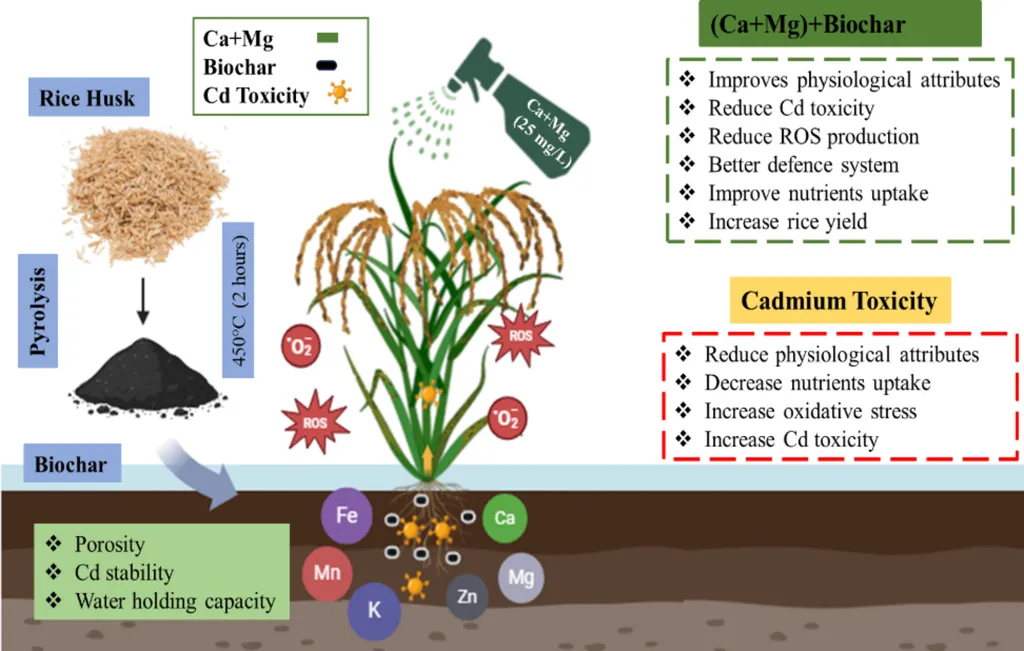In the heart of Jiangxi, China, a groundbreaking study led by Muhammad Umair Hassan from the School of Life Sciences at Jinggangshan University is reshaping our understanding of how to mitigate antimony (Sb) toxicity in rice cultivation. Antimony, a toxic metalloid, poses significant threats to plants, humans, and ecosystem stability. Hassan’s research, published in *Environmental Chemistry and Ecotoxicology* (which translates to *Environmental Chemistry and Ecotoxicology*), explores the synergistic potential of biochar and bacterial inoculation to combat Sb contamination and enhance rice growth.
The study involved a rice pot experiment with six treatments, ranging from unstressed soil to combinations of Sb stress, biochar (BC), and Bacillus subtilis bio-inoculum (BI). The results were striking. The combination of 2.5% BC and BI not only improved rice growth and final grain yield by 85% but also significantly reduced Sb concentration in plant organs by 43%. “The maximum stress relief was obtained with 2.5% BC + BI, which increased rice growth and final grain yield by improving several plant traits and soil properties, while decreasing Sb availability,” Hassan explained.
The implications for the agricultural sector are profound. By reducing Sb accumulation in rice, this method ensures safer food production and enhances crop yields. The study also revealed that the combination of BC and BI boosted soil microbial diversity, a critical factor for sustainable agriculture. “The addition of BC + BI significantly boosted the relative abundance of soil bacteria involved in reducing Sb toxicity,” Hassan noted.
This research could revolutionize farming practices in areas affected by heavy metal contamination. The use of biochar and bacterial inoculation not only mitigates toxicity but also improves soil health and crop productivity. As the world grapples with the challenges of food security and environmental sustainability, Hassan’s findings offer a promising solution.
The study’s findings highlight the potential of biochar and bacterial inoculation to improve rice production, reduce antimony plant accumulation, and ameliorate soil bacterial community diversity. This research could pave the way for innovative agricultural practices that are both environmentally friendly and economically viable. As we look to the future, the integration of such technologies could be a game-changer for the energy and agricultural sectors, ensuring sustainable food production and environmental health.

